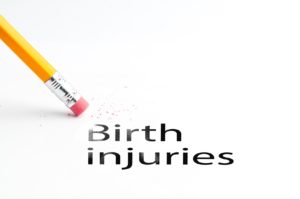Category: Medical Negligence

When you are conscious but unable to move, you can understand what is going on around you but cannot easily express your thoughts to others. This can create a frustrating situation, mainly when, along with being conscious, you can see and hear clearly. With full cognitive function and the ability to understand conversations, you invariably
Read More
The exact prevalence of locked-in syndrome, called LIS, is not known. However, it is an extremely rare condition. There is less than one case out of every million people, with only a few dozen cases officially diagnosed. Those whose loved one suffers from this devastating syndrome may try to care for their family member at
Read More
A person with locked-in syndrome can see, hear, think clearly, recognize faces, and understand everything that is going on around him or her. But aside from the muscles controlling the eyes, he or she cannot move a single body part, nor can he or she speak or even breathe without assistance. Locked-in syndrome is one
Read More
Damage to the pons is the usual cause for locked-in syndrome. The pons is a part of the brain stem responsible for relaying nerves between the brain and spinal cord. When the transmission of these nerves gets interrupted or cut off, the brain cannot send the proper signals to the muscles to move or contract.
Read More
The exact numbers of cases of locked-in syndrome are difficult to find in medical literature, but many consider it a rare condition. A typical person is likely to live his or her entire life without ever meeting or knowing anyone with locked-in syndrome. But for the small percentage of people who develop it, locked-in syndrome
Read More
The overwhelming majority of patients with locked-in syndrome never make a full recovery. Most never make any improvement, even a small or incremental one. There are cases of patients completely reversing the condition, but they are exceedingly rare and usually happen because the underlying cause is treatable and gets addressed within hours of onset. Somewhat
Read More
If you suspect your child suffered a childbirth injury due to medical malpractice, it might be difficult to know when to contact a birth injury lawyer. You should contact an attorney as soon as you realize a birth injury occurred and you think someone else might have been responsible. A birth injury lawyer can help
Read More
If you suffered medical malpractice injuries at the hands of a military doctor or at a VA facility, you may sue the responsible party—with one notable exception. Active duty servicemembers cannot file a lawsuit against the military due to the Feres Doctrine. To find out if you qualify to sue the military for medical malpractice,
Read More
More medical malpractice claims arise from surgical procedures than from any other medical field. While any number of things can go wrong during complex medical procedures, there are some common allegations in malpractice cases involving surgery. If you believe you were the victim of medical malpractice, an attorney from Newsome | Melton can help. We can determine
Read More
How long medical malpractice cases take depends on a variety of factors, like the complexity of the situation or severity of the victim’s injuries. Settling a claim could take anywhere from a few months to several years. Your case could settle at any one of multiple stages, or it could go to trial. For more information
Read More
There are typically four elements to determine if someone is the victim of medical negligence. You must prove all four to win a medical malpractice case. If you experience a bad outcome from a medical procedure or a health care provider makes a mistake, it is not automatically medical negligence. What Are the Four Elements of
Read More
While every case is different, there are specific medical procedures that are consistently at the root of medical malpractice suits. If you must have one of these risky procedures, you should educate yourself on the common errors and complications so you can recognize them and get immediate medical attention. What Medical Procedure Results in the Most
Read More
While most people associate medical malpractice claims with doctors—and it is true that doctors are the target of many such claims—you can file a medical malpractice lawsuit against someone other than a doctor. Common non-doctor targets of medical malpractice lawsuits include hospitals, medical facilities, and nurses. In a medical malpractice lawsuit, the plaintiff alleges that a
Read More
A more invasive procedure than liposuction, an abdominoplasty, or tummy tuck, is a surgery used to remove fatty tissues and tighten the skin of the middle and lower abdomen area. Tummy tucks can raise your self-esteem level by improving your appearance to make you feel better about yourself. Out of the thousands of tummy tuck
Read More
Liposuction has long been considered in medical circles as one of the most dangerous forms of plastic surgery. Regardless of the duration of the procedure or the technique with which it is executed, any patient opting for liposuction exposes themselves to certain amount of risk. A recent research study by two prominent plastic surgeons in
Read More
Of the approximately 300,000 American women who have breast augmentation surgery each year, some 240,000 choose the procedure for cosmetic reasons. For the remainder, breast augmentation is a reconstructive surgery following mastectomy or accidental breast scarring. The number of annual breast augmentations makes the operation the most common cosmetic surgery performed in the United Sates,
Read More
The increase in the number of breast augmentations performed has also led to an increase in the number of breast implant malpractice claims. When a patient is seriously injured or dies as a result of breast augmentation surgery, it is possible that malpractice has occurred. Potential Breast Implant Injuries There is always a risk involved
Read More
The number of people choosing elective cosmetic, or plastic, surgery has increased drastically since 2000. Even the recession that began in 2007 hasn’t stemmed the desire for cosmetic surgery, according to a report from the American Society for Aesthetic Plastic Surgery. Americans underwent more than 1.6 million elective cosmetic surgeries in 2010 alone, according to
Read More
According to statistics published by the National Institute of Health, more than six times as many operations of gastric bypass surgery were performed in the last decade of the 20th century. Although the statistics are not yet available for the first decade of the 21st century, the Institute expects the current pace of more gastric
Read More
What is Gastric Branding? Gastric banding is a surgical procedure which was approved for use by the Food and Drug Administration in 2001 as a means for helping obese patients successfully manage their weight. The procedure is usually only recommended for those with over 100 pounds in extra weight, with a body mass index exceeding
Read More
While an appendectomy is a routine procedure that is frequently performed, complications can quickly result if a surgical error occurs during the procedure or if the patient’s symptoms of appendicitis are not addressed in a timely manner. Although the appendix is a relatively small organ and does not appear to aid in a particular body
Read More
Despite many protocols and requirements that hospitals are setting in order to avoid surgical mistakes, doctors and surgeons are still performing an alarming number of errors in the operating room. In the case of surgical negligence, the responsible party largely depends on who the surgeon is employed by and whether or not the error was
Read More
When a doctor chooses to administer a potentially addictive treatment to a patient, he or she has a responsibility to make the patient aware of the possibility, as well as monitor the patient for signs of addiction. Should he or she notice signs of drug abuse, they have an obligation to immediately discontinue the prescription
Read More
Signs of an allergic reaction can manifest in numerous ways. The symptoms can vary from the rash and skin irritation associated with contact dermatitis, or a case of anaphylactic shock, which places the life of the patient in jeopardy. Allergies occur as a result of a hypersensitive immune system and many types of substances can
Read More
An upper GI endoscopy, usually called an “EGD” (after “EsophagoGastroDuodenoscopy,” the proper medical name of the procedure), is the visual examination of the upper intestinal tract (esophagus, stomach, and duodenum) using a lighted, flexible, fiber-optic endoscope. Although EGD is considered a relatively safe diagnostic procedure, there have been reported instances of accidental esophageal perforation (puncture)
Read MoreMedical Negligence
